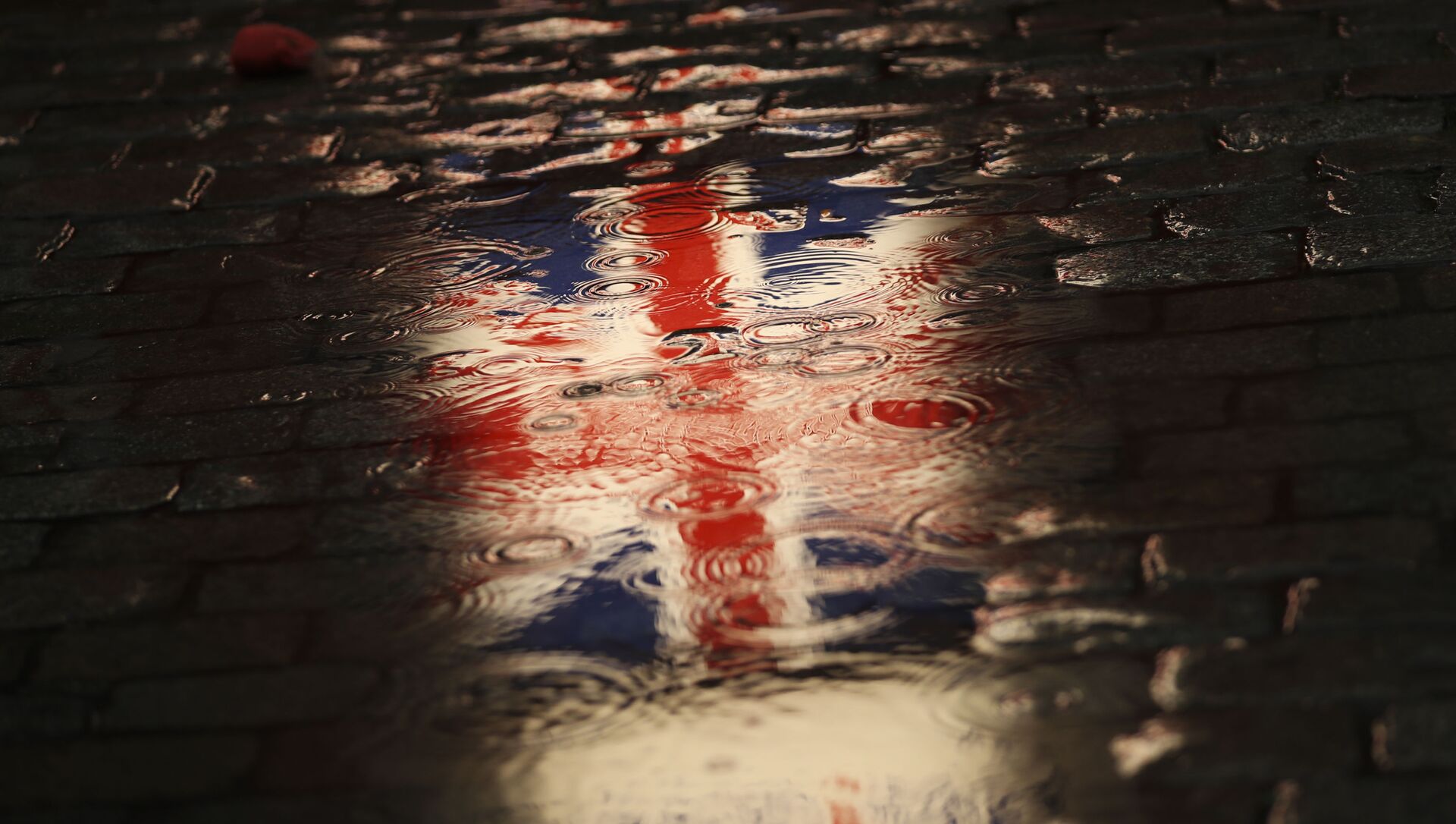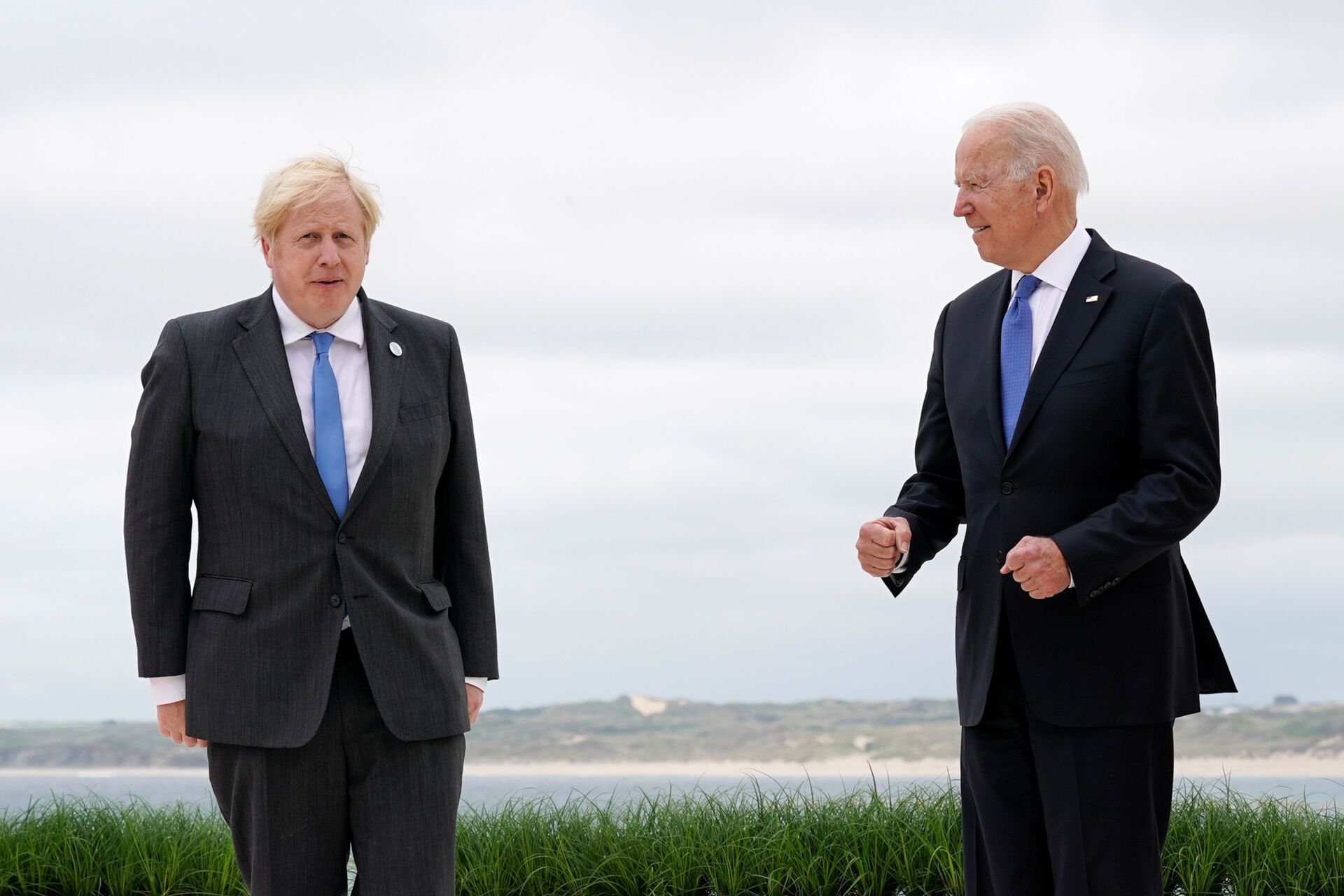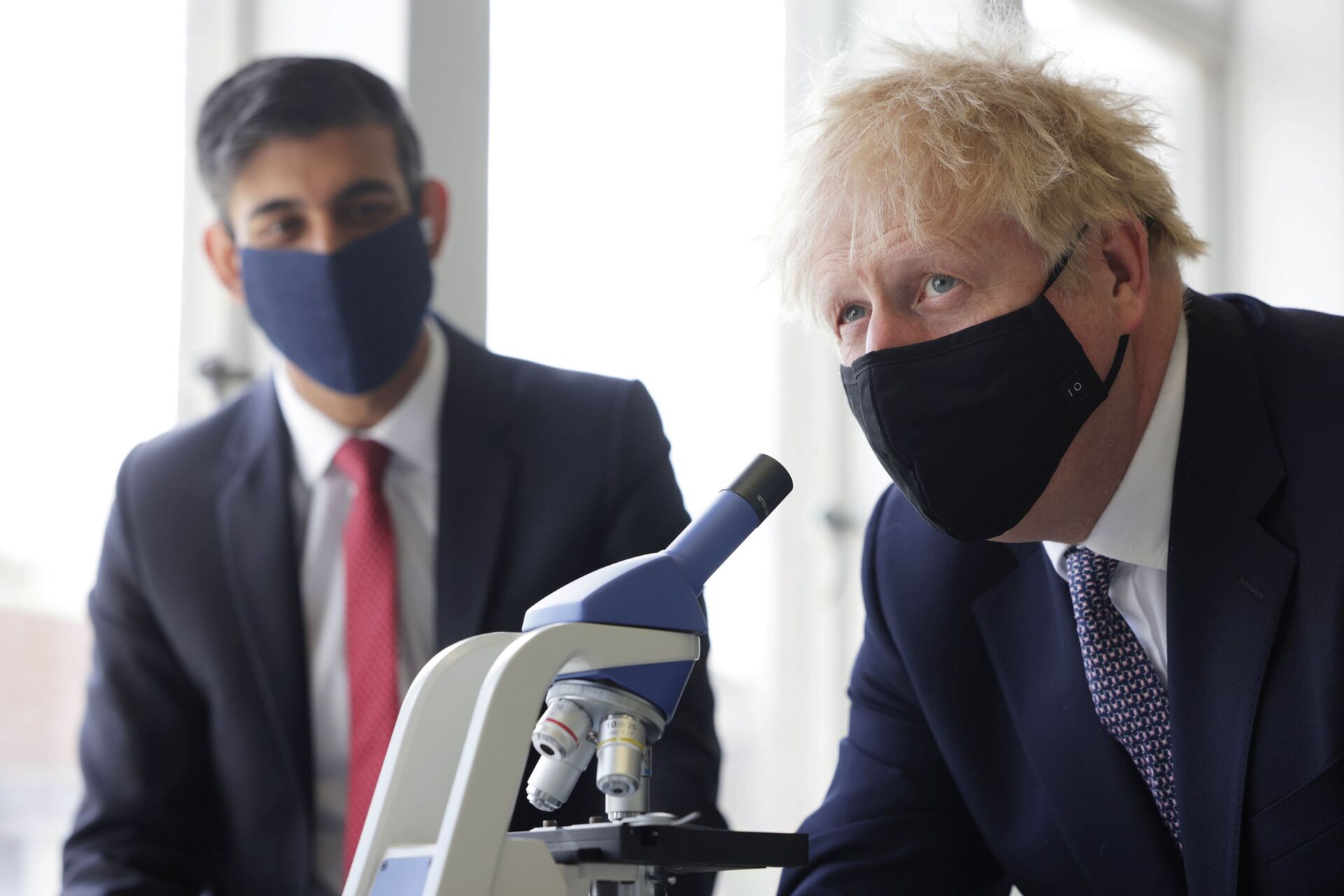'Global Britain' Brand Fading as BoJo Seeks to Slash Foreign Aid to Suffering Nations, Observers Say
19:39 GMT 05.07.2021 (Updated: 15:14 GMT 28.05.2023)

© AP Photo / Francisco Seco
Subscribe
The Johnson government is facing growing dissent within its ranks over the proposed cuts to the UK's spending on foreign aid. While the measure appears to be a rational response to the COVID-related economic slump, it also undermines the UK's post-Brexit 'Global Britain' vision, British observers warn.
UK Prime Minister Boris Johnson is "actively considering" allowing MPs to hold a binding vote on the £4 billion ($5.6 billion) cuts to the overseas aid budget amid brewing rebellion within the ranks of the British Conservatives, The Sunday Times suggested on 4 July.
However, The Telegraph reported on the same day that the premier would hold firm against rebelling Tories and deny them a vote, despite earlier suggestions that he could green-light the discussion before the summer recess of Parliament on 22 July.
In November 2020, Chancellor of the Exchequer Rishi Sunak signalled a reduction in the UK foreign aid budget from 0.7 percent to 0.5 percent of the country's income due to the negative impact of the pandemic and COVID-related measures on the nation's economy. If the government resorts to the cuts announced by Sunak, it would diminish the foreign aid budget from roughly £15 billion ($20.7 billion) to around £10 billion ($13.8 billion).
The commitment to donate 0.7% of the country's gross national income to overseas development aid was initially made by the Tony Blair government and then enshrined into law in 2015 by the cabinet of David Cameron. Since then, both the Tory and Labour parties have adhered to the commitment. Although the proponents of the measure argue that the cuts would be temporary, opponents are suspicious that "the temporary might become permanent very easily," according to The Conversation.
"This is clearly a calculated move to save money and possibly to win voter support," says Chris Stafford, a doctoral researcher at the University of Nottingham in the Politics and International Relations Department. "The pandemic has cost the government a lot of money, so cutting foreign aid is an easy way to recoup a little of this."
The Johnson government has found itself between the devil and the deep blue sea as it has to cope with "a huge public debt and it is boxed in in terms of options for increasing taxation as it has ruled out increases in income tax, VAT or national insurance which account for around two-thirds of revenue," explains Wyn Grant, professor of international politics at Warwick University. In addition to that, it is "maintaining the state pensions triple lock which looks like being expensive in the coming year."
"Cutting foreign aid looked like low hanging fruit given that it was popular with the public," Grant notes, adding, however, that it has proved to be "contentious."
Indeed, while initial opinion polls had suggested that the cuts are largely endorsed by Britons, recent surveys suggest that actually, the public may have turned against it, notes Stafford. According to him, some Conservative MPs apparently worry that the measure could backfire during the next election.
Yet another concern of MPs is related to the UK's attempts to "build credibility on the world stage as an outward looking independent nation," Stafford continues, presuming that British parliamentarians "are hesitant about the cuts due to how they may affect the UK's standing in the world."
"It contradicts the Government’s stated claims to ‘Global Britain’ vision after Brexit, in which the UK would lead the world and preserve the liberal order; and contradicts statements suggesting that the government as part of the G7 wants to vaccinate the world," echoes Inderjeet Parmar, professor of international politics at City University. "This was always a hollow claim contradicted by actual ‘vaccine nationalist’ behavior."
Parmar argues that the foreign aid cuts also undermine the recovery of the British economy "which, after all, receives contracts to supply goods and services to poorer countries."
Simmering contradictions are splitting the Conservative Party and especially the anti-Johnson grouping, which probably wants him removed from office before the next election, the international affairs expert believes.

British Prime Minister Boris Johnson and U.S. President Joe Biden pose for photos at the G-7 summit, in Carbis Bay, Cornwall, Britain June 11, 2021
© REUTERS / POOL
Former Brexit Secretary David Davis and former Prime Minister Theresa May are among 50 Conservative rebel MPs who are seeking to upend the Johnson government's proposal.
"It’s going to have devastating consequences across the world. Historically I’m a critic of aid spending, but doing it this way is really so harmful,” David Davis told BBC last month.
On 7 June, Boris Johnson narrowly avoided a rebellion within his party over the cuts. A group of Tories and ex-cabinet ministers backed an amendment brought forward by Conservative former minister Andrew Mitchell. However, Commons Speaker Sir Lindsay Hoyle ruled that the piece of legislation was out of scope. The debate preceded the G7 summit hosted by Britain between 11 and 13 June which added to the simmering controversy surrounding the reduction of aid.
“In the week of British chairmanship of the G7, the government’s failure to address this issue will undisputedly mean that hundreds of thousands of avoidable deaths will result," Mitchell stressed at the time. "It is already attracting criticism from all round the other members of the G7."
The top ten recipients of the UK's foreign aid are Pakistan, Ethiopia, Afghanistan, Yemen, Nigeria, Bangladesh, Syria, South Sudan, Democratic Republic of Congo and Somalia.


